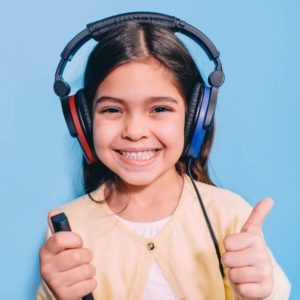What happens when you pass your hearing test, but still feel there is a hearing problem?
For children and adults with an Auditory processing difficulty this is often the case. Auditory processing is what the brain does with what we hear.
A person may pass a peripheral hearing test, but struggle to make sense of what they hear because the brainstem and brain are not processing sounds correctly. This could come about when noise is present or when multiple people are speaking at the same time.
Common signs to look for in children include:
– Says huh/what? often even though hearing has been tested and found to be normal
– Asks for repetition
– May have a delayed response when asked a question
– May look as though they are unable to concentrate when there is a lot of noise in the classroom. This is because they may not be able to identify the primary sound from background noise
– a necessary auditory skill known as auditory figure-ground. APD patients also have a short auditory attention.
– May have reading and spelling or comprehension issues. Learning to read, spell, or sing depends on auditory skills like identifying and joining syllables, attaching meaning to sounds, and remembering the sequence of sounds and words.
– Has been diagnosed with Dyslexia (up to 70% of children with dyslexia have APD)
– Some children with APD may lack a skill called auditory sequencing, they may be confused about the order of sounds. That is because their brain cannot store and recall the auditory stimuli – that is sounds – in the exact order. This would make it difficult for them to learn anything by repetition, say a poem or even music. They would also have difficulty following verbal instructions.
Audiology Services
Noise Protection, Sleep Plugs & Swim Plugs
Noise is one of the leading causes of hearing loss and is totally preventable.
If you work with noisy machinery, drive a motor-bike or sleep next to someone who snores, get in touch with us to have a look at our custom made noise protection.
We also offer swim plugs for children and adults who may not be able to get their ears wet. This could be as a result of recent ear surgery or middle ear infections.

 Locations
Locations
 Patient Registration
Patient Registration
